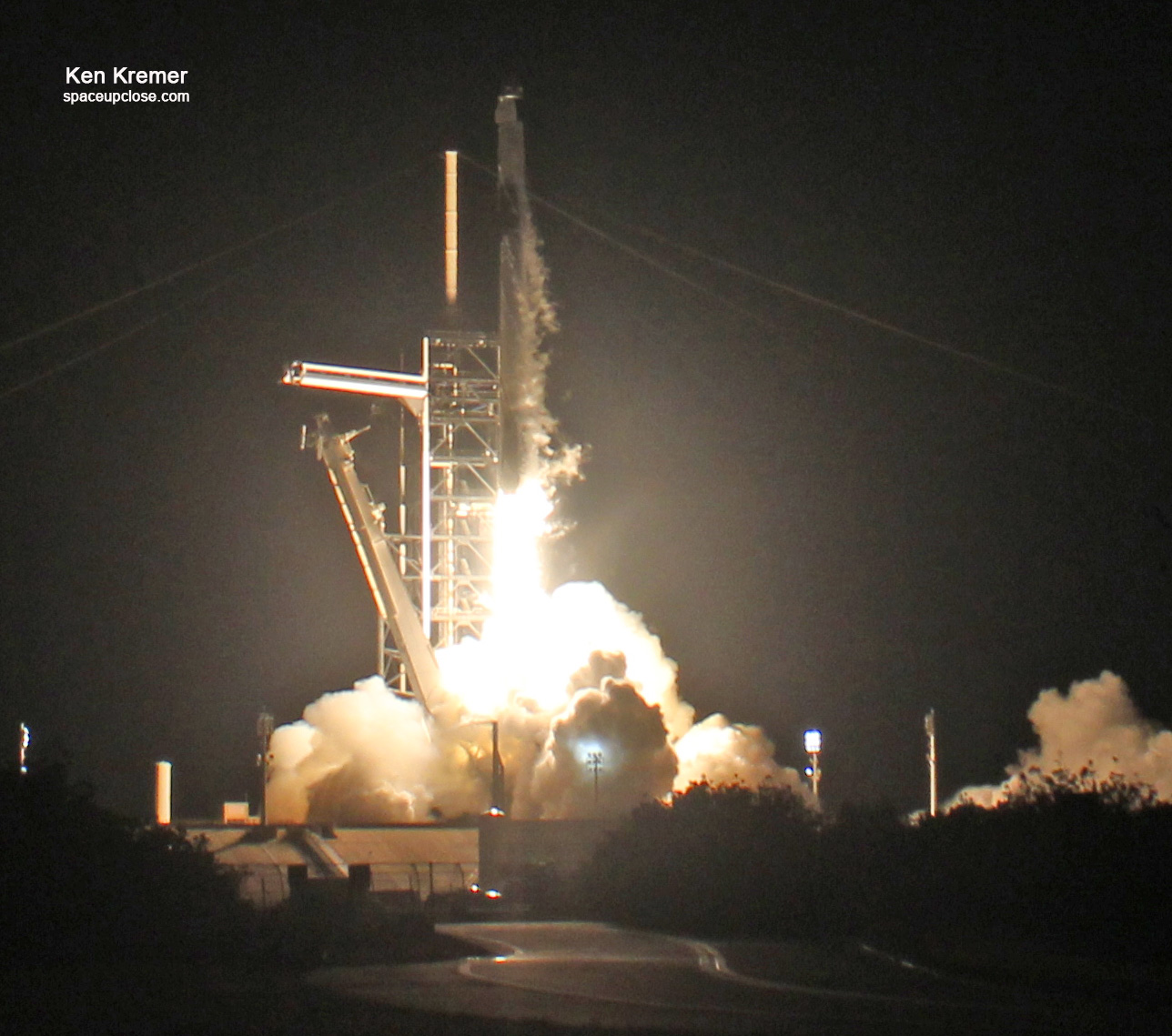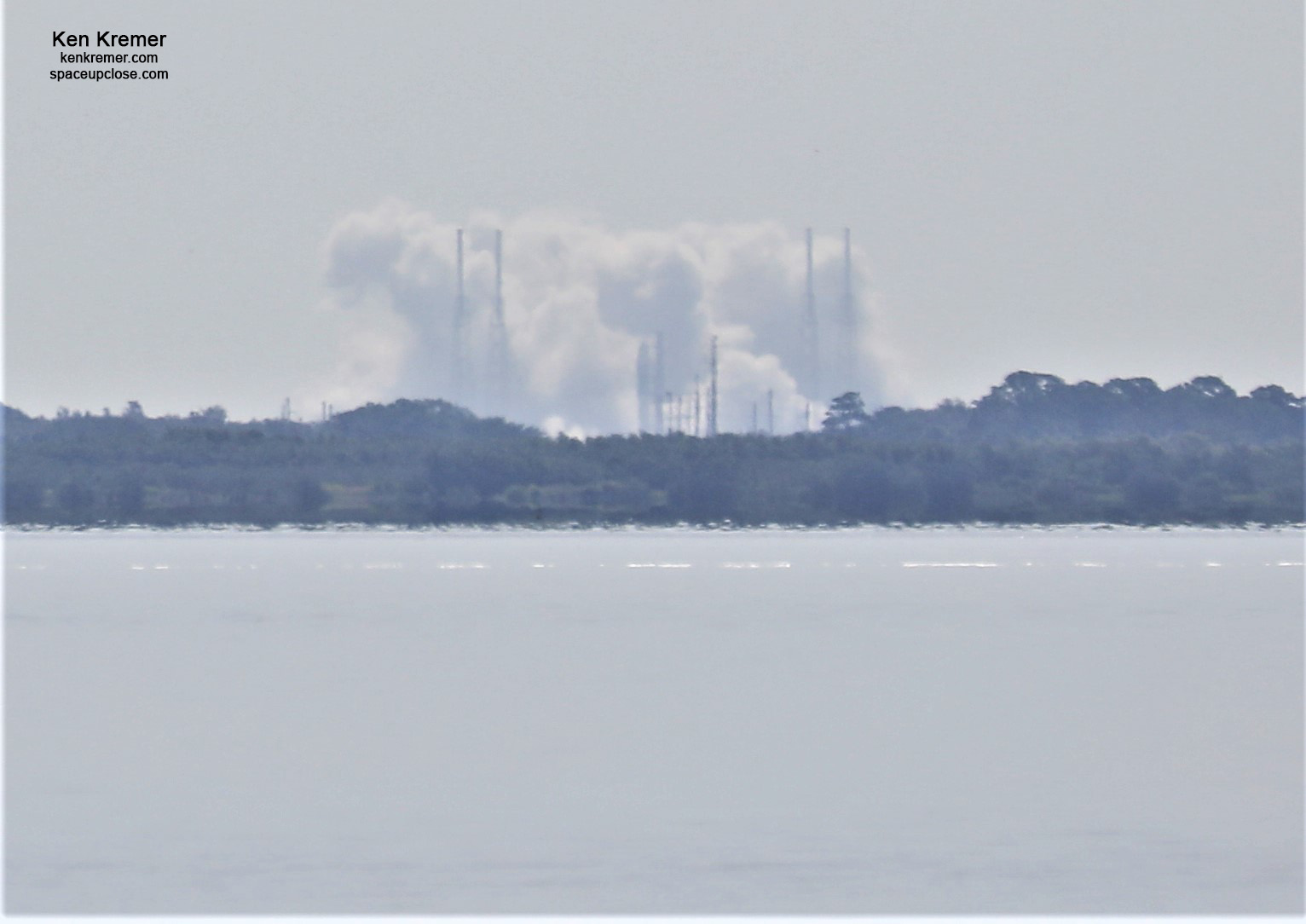
For SpaceUpClose.com & RocketSTEM
TITUSVILLE, FL – In a remarkable sign of their swiftly increasing launch cadence SpaceX engineers carried out another hot fire engine test this morning, Thursday, Jun 25, for next week’s GPS III Space Vehicle 03 navigation satellite launch – and it comes as the second in just under 16 hours on the heels of after another test fire yesterday using 2 different Falcon 9 rockets at 2 nearby launch pads for 2 different missions on Florida’s Space Coast – and its all as the their next batch of Starlink internet comsats await liftoff Friday afternoon, June 26
And in contrast to the lengthy delay in confirming a good test from yesterdays Starlink Falcon 9 static fire test, SpaceX quickly announced a good result from the GPS Falcon 9 test within an hour of the event.
“Static fire test complete – targeting Tuesday, June 30 for Falcon 9 launch of GPS III Space Vehicle 03 from Space Launch Complex 40 in Florida,” SpaceX tweeted.
Static fire test complete – targeting Tuesday, June 30 for Falcon 9 launch of GPS III Space Vehicle 03 from Space Launch Complex 40 in Florida
— SpaceX (@SpaceX) June 25, 2020
Liftoff of the GPS III Space Vehicle 03 navigation satellite mission is slated for 3:55 p.m. Tuesday June 30 from seaside Launch Complex-40 on Cape Canaveral Space Force Station, FL.
The GPS III-3 mission will be the third on behalf of the U.S. Space Force launch
The brief static fire test of the recycled Falcon 9 rocket minus the expensive payload and nose cone attached was carried out precisely at 10 a.m. (1400 GMT), Thursday, June 25 at Space Launch Complex-40 on Cape Canaveral Space Force Station and appeared to go well.
I watched the breakfast time engine test Thursday from nearby in Titusville, Fl about a dozen miles away across the Indian River lagoon and observed the exhaust plume and vapor cloud emanating from the bottom of the booster.
Enjoy my eyewitness photos of the static fire test at Space UpClose under hazy but beautiful weather conditions with mostly and scattered clouds and minimal haze.
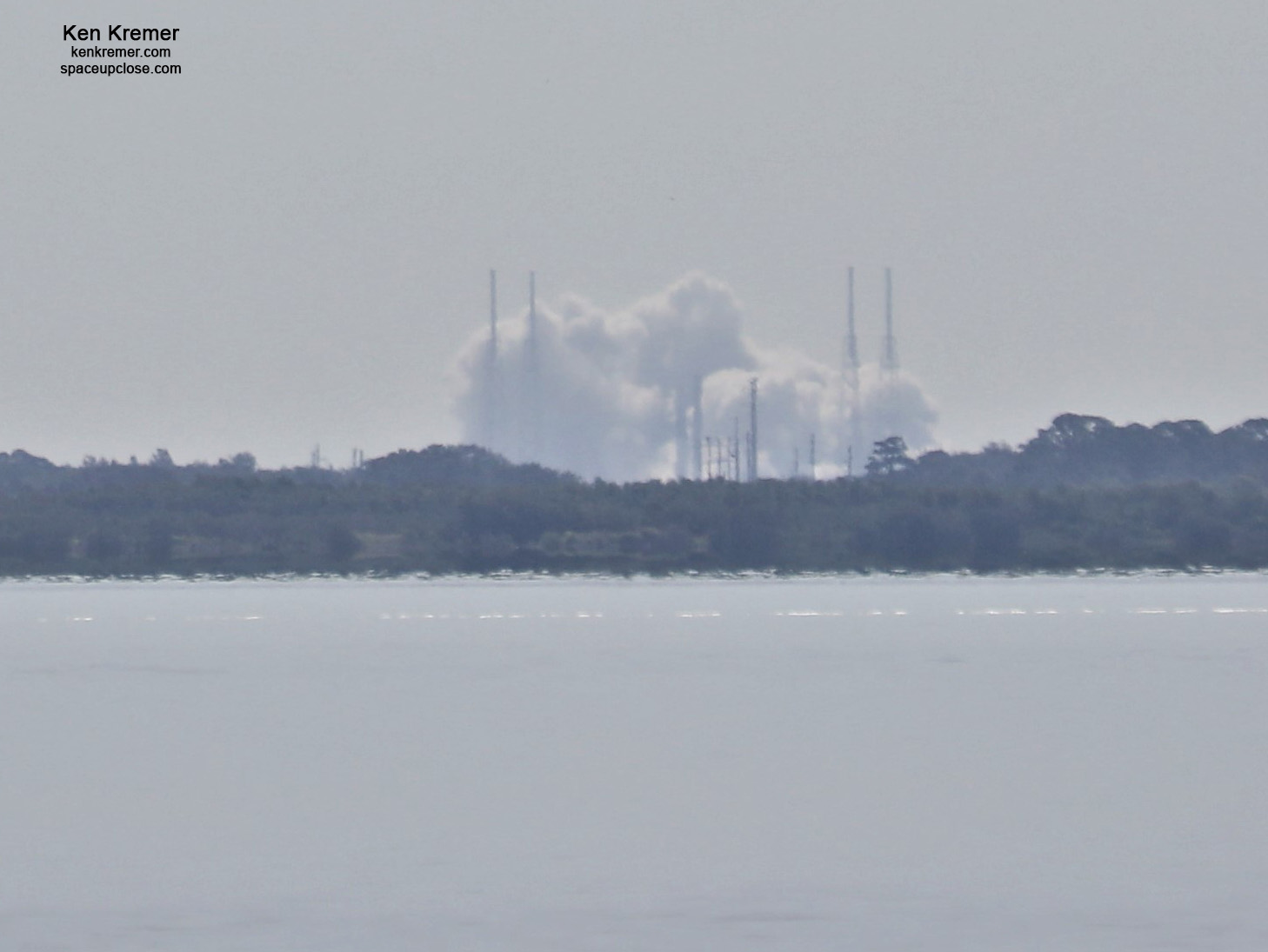
The exhaust was easily visible and wafting overhead and dissipating quickly in the winds about 12 miles away.
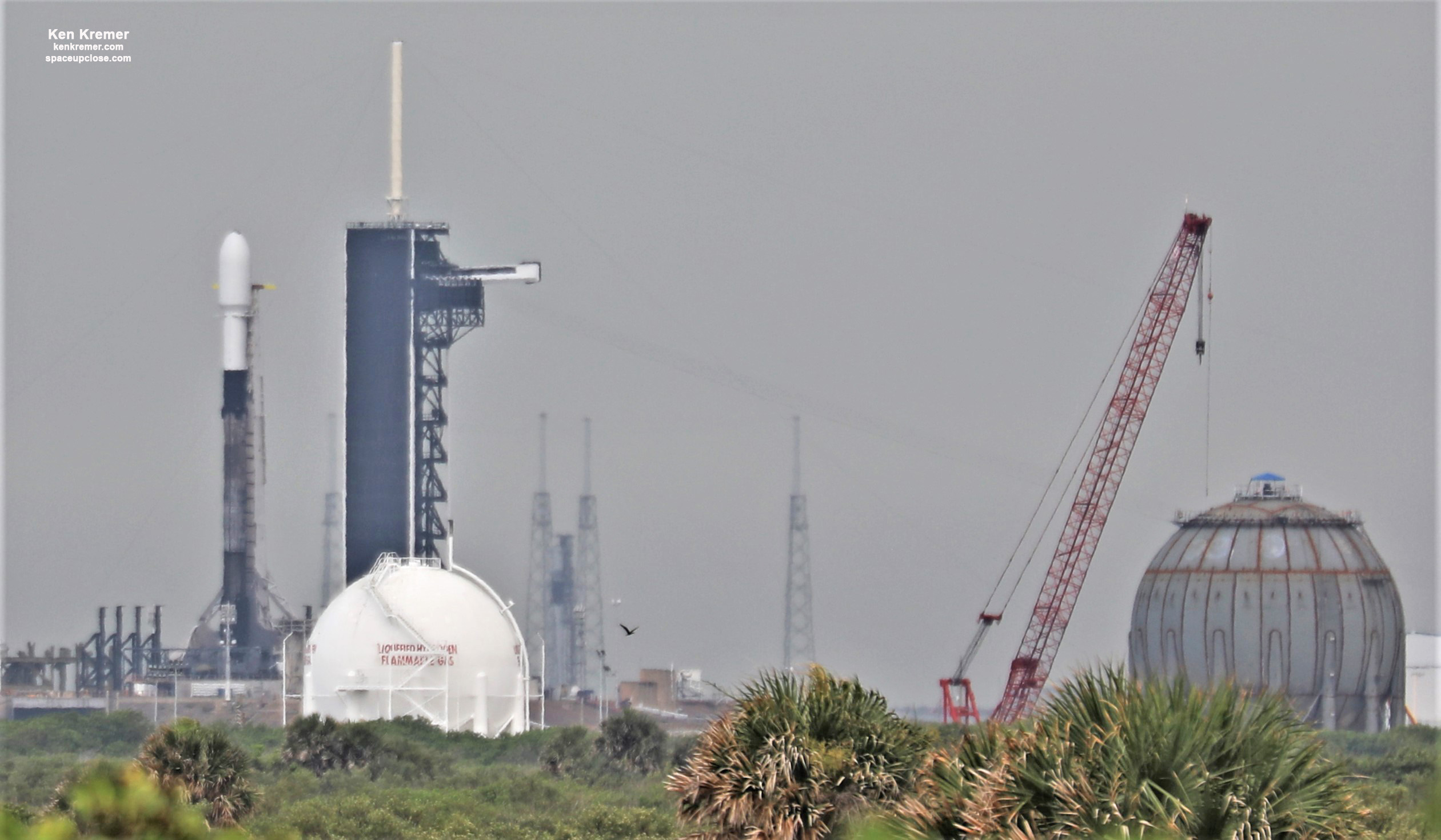
The brief hold down hotfire test of the fully integrated SpaceX Falcon 9 first stage rocket and Merlin 1D engines is run after the rocket is raised vertical and is routinely done to confirm the readiness of the rocket for launch.
All 9 Merlin 1D first stage engines are ignited to generate approx. 1.7 million pounds of thrust for about 3 seconds or so.
During the hold down static fire test, the rocket’s first and second stages are fueled with liquid oxygen and RP-1 propellants just like an actual launch, and a simulated countdown was carried out to the point of a brief engine ignition lasting around 3 seconds or so.
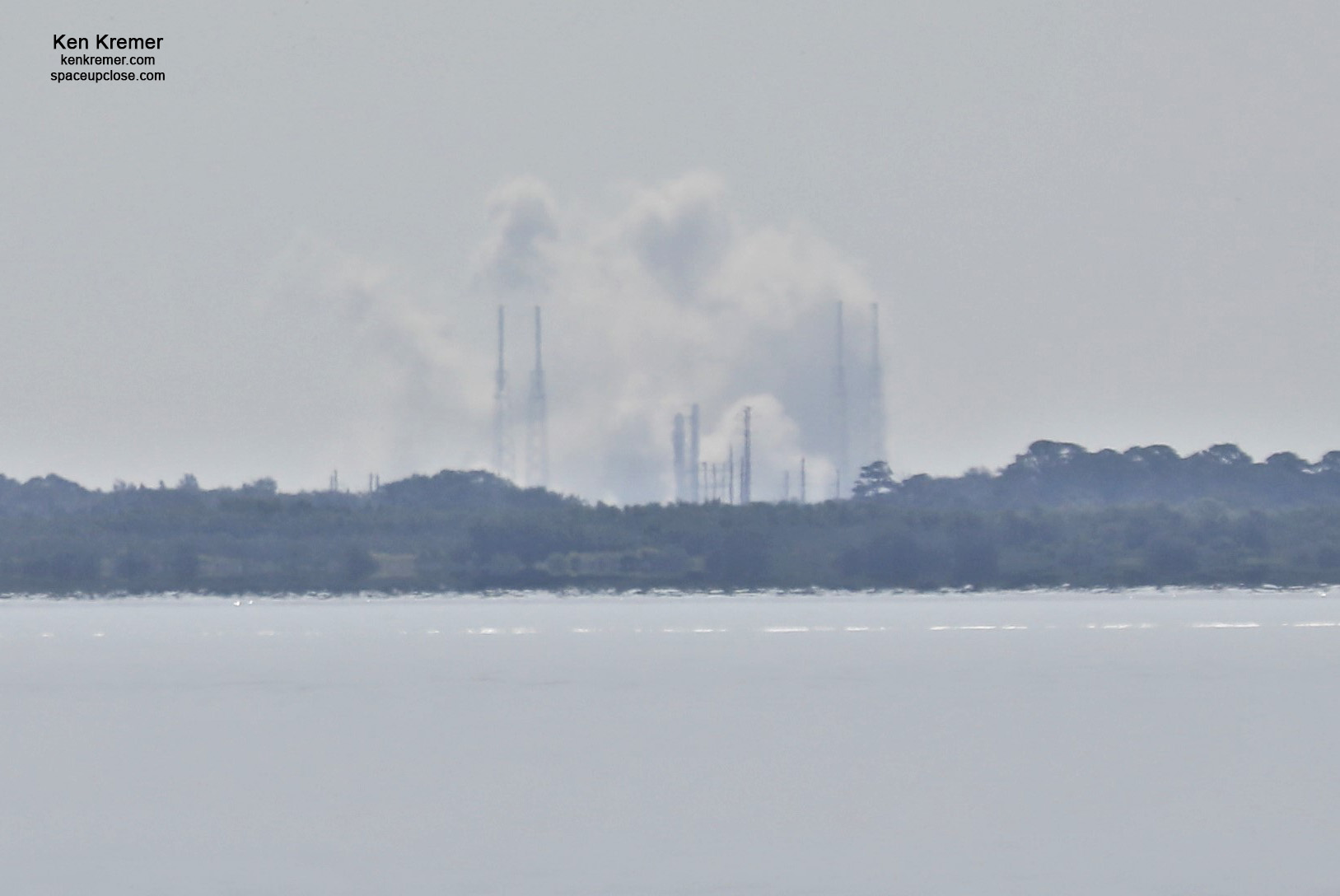
“GPS III-3 will be the third U.S. Space Force launch, second NSSL mission to be launched on a SpaceX Falcon 9 rocket, and the first National Security Space Launch mission where a launch service provider will be recovering a booster,” says the military’s Space and Missile Systems Center.
Lockheed is the prime contractor for the GPS III navigation satellite series comprising a constellation of 6 satellites.
SpaceX launched in the first in this series followed by ULA.
Watch my commentary about the SpaceX Starlink launch at WFTV ABC 9 Orlando TV News on Jun 25
Watch my live Starlink launch and post ULA Atlas V WDR interview about Mars 2020 rover and more at the American Space Museum ‘Stay Curious’ daily weekday show on June 22, 2020
https://www.facebook.com/SpaceWalkOfFame/videos/304165737643422/UzpfSTY1OTc4NDE4NjoxMDE1ODc1MTcyNTAxNDE4Nw/
Watch Ken’s continuing reports about Commercial Crew and Artemis and onsite for live reporting of upcoming and recent SpaceX and ULA launches including Demo-2, Starlink, X-37B, Solar Orbiter, Mars 2020 and more at the Kennedy Space Center and Cape Canaveral Space Force Station.
Stay tuned here for Ken’s continuing Earth and Planetary science and human spaceflight news: www.kenkremer.com –www.spaceupclose.com – twitter @ken_kremer – email: ken at kenkremer.com
Dr. Kremer is a research scientist and journalist based in the KSC area, active in outreach and interviewed regularly on TV and radio about space topics.
………….
Ken’s photos are for sale and he is available for lectures and outreach events
x



